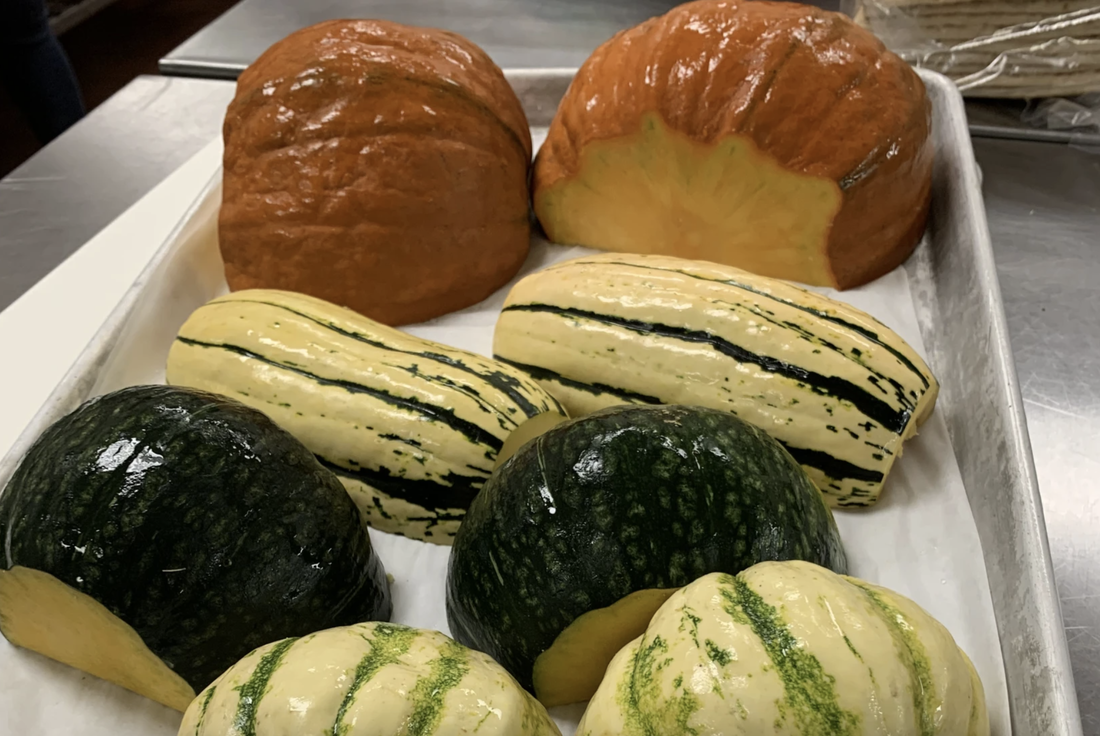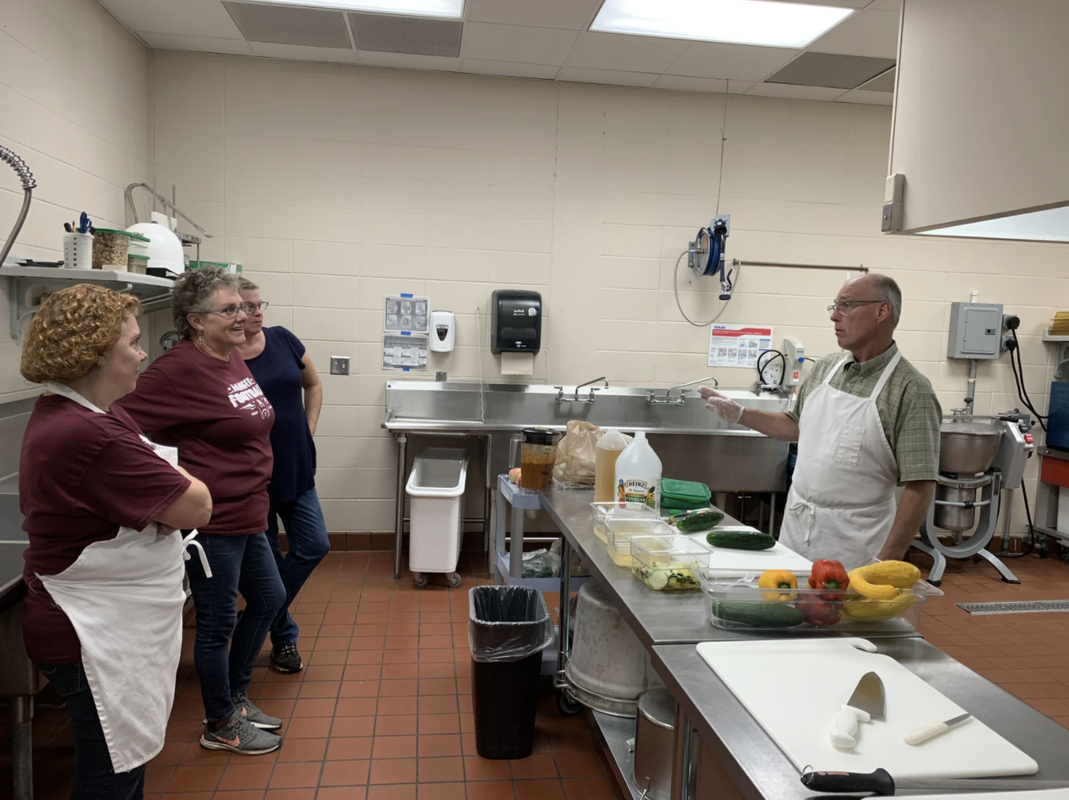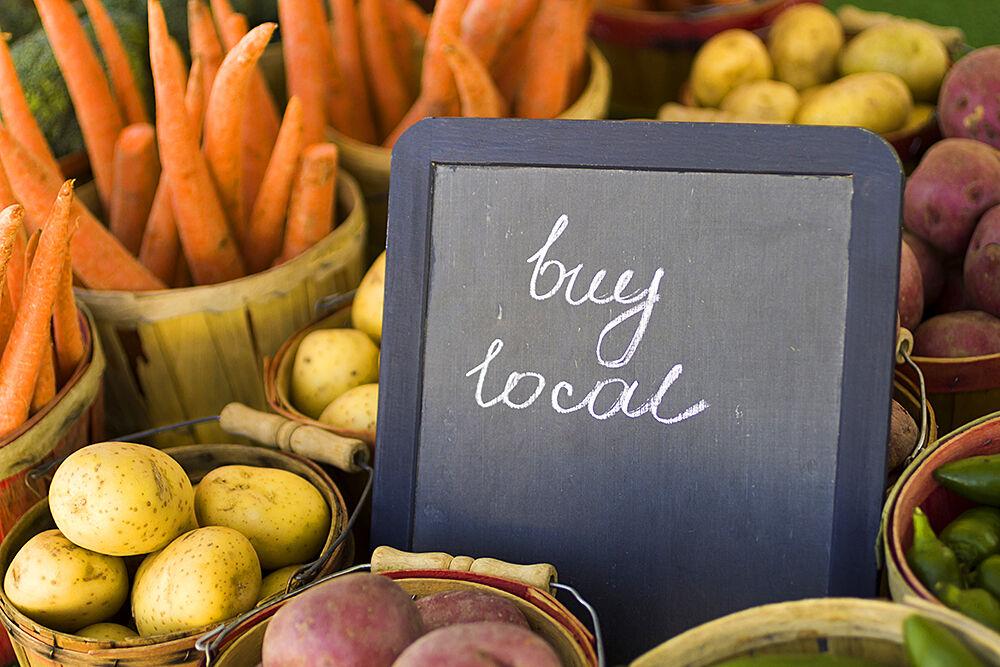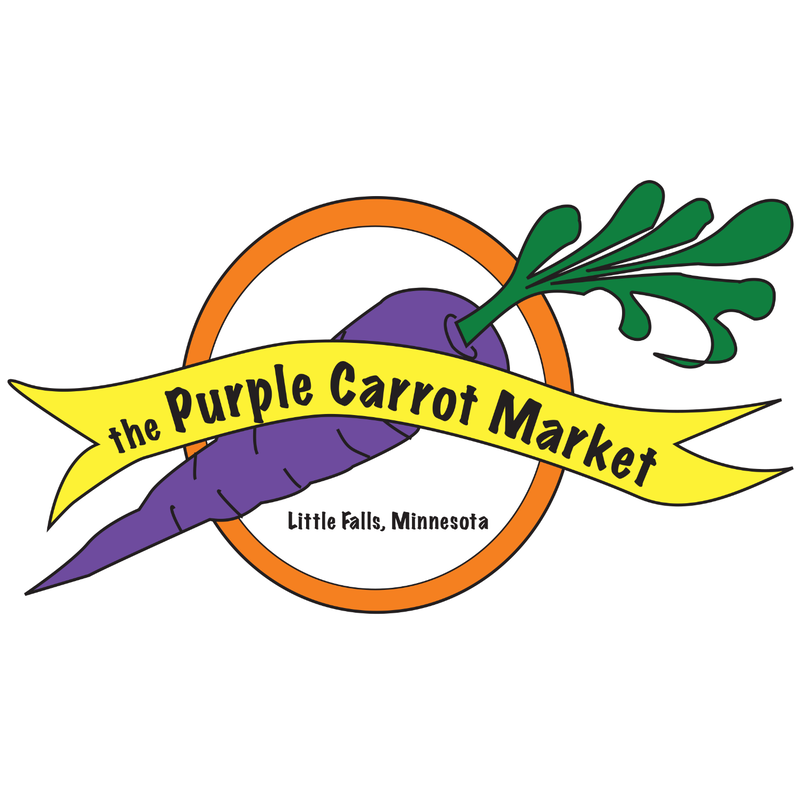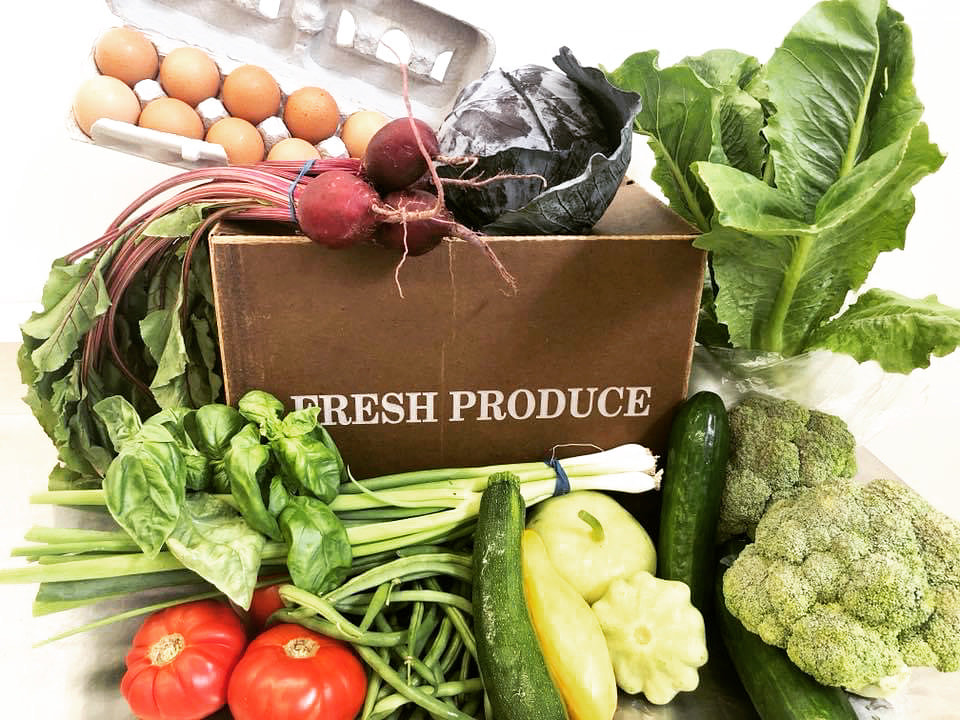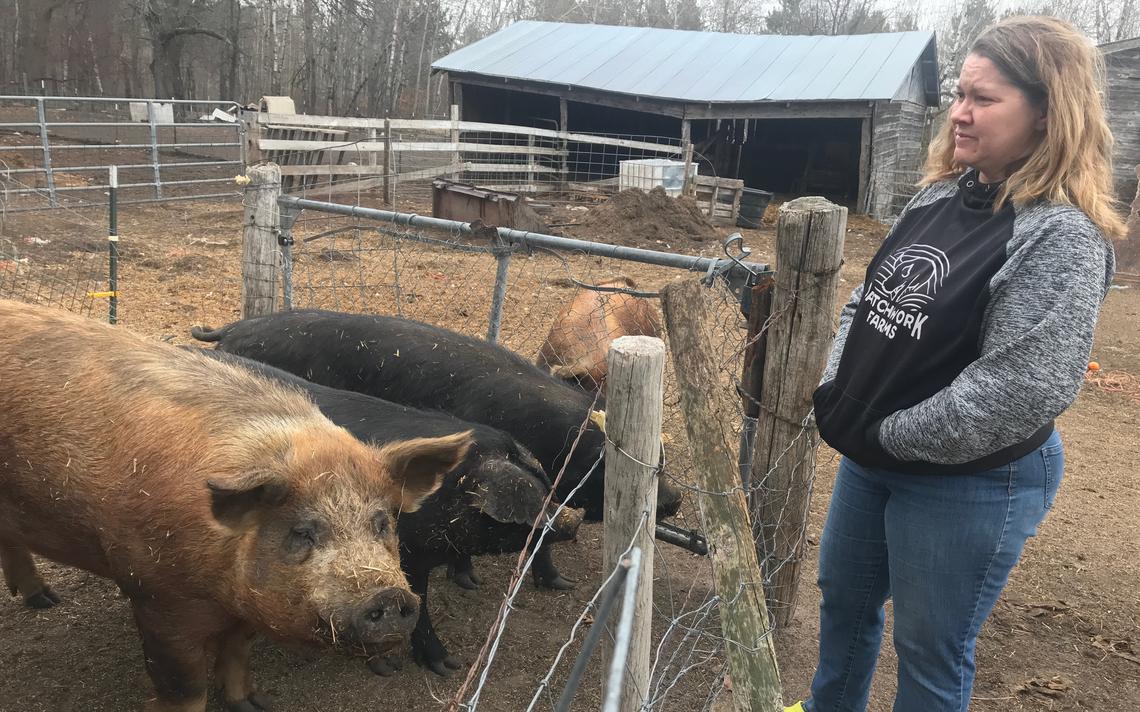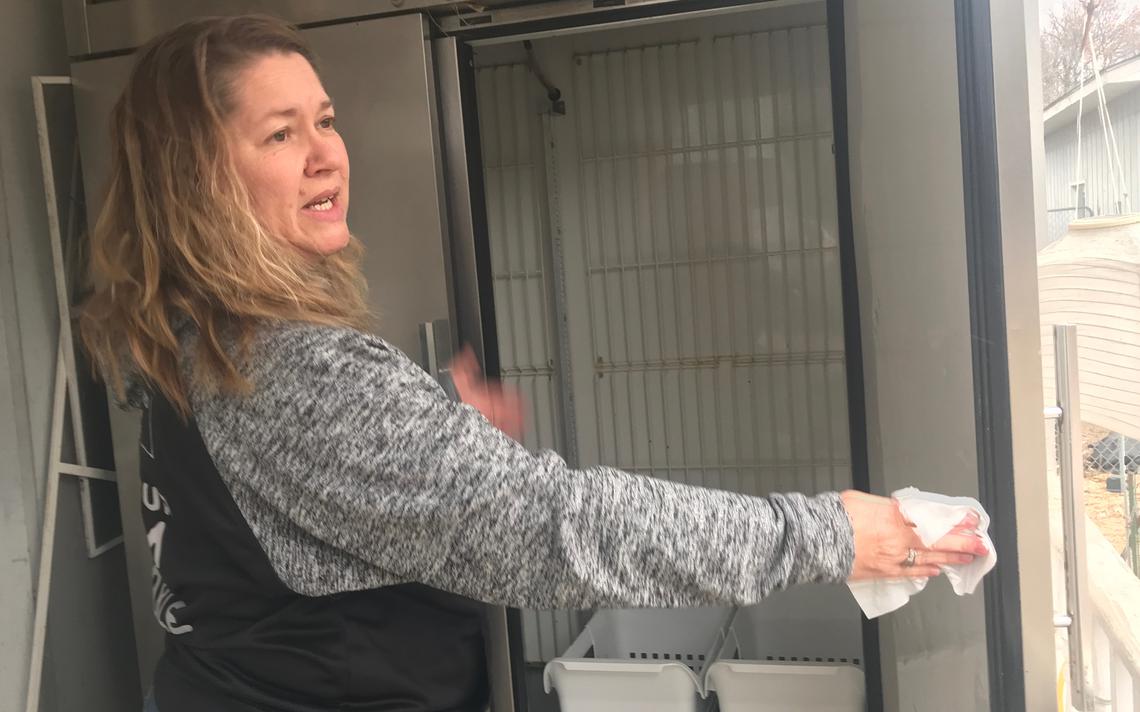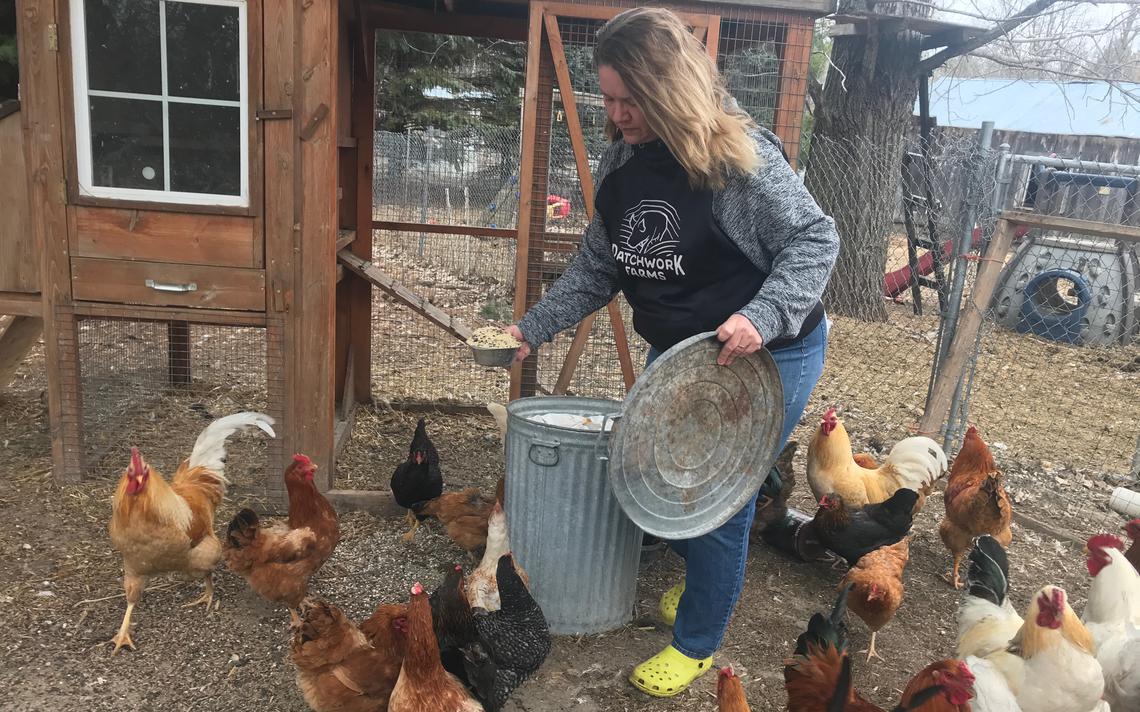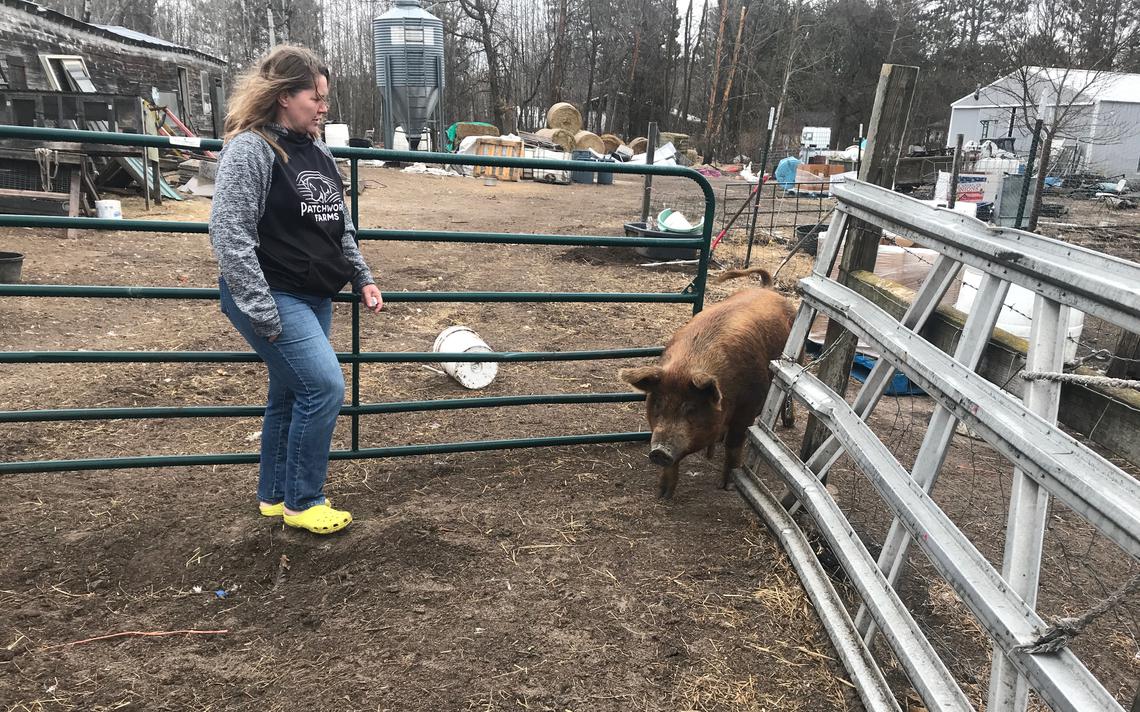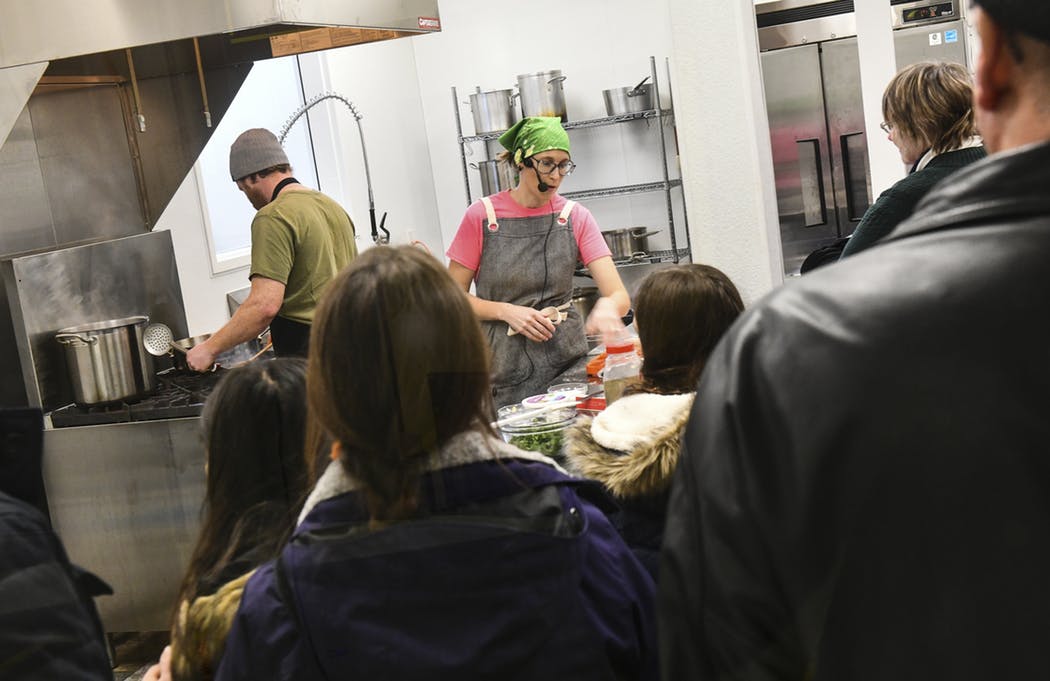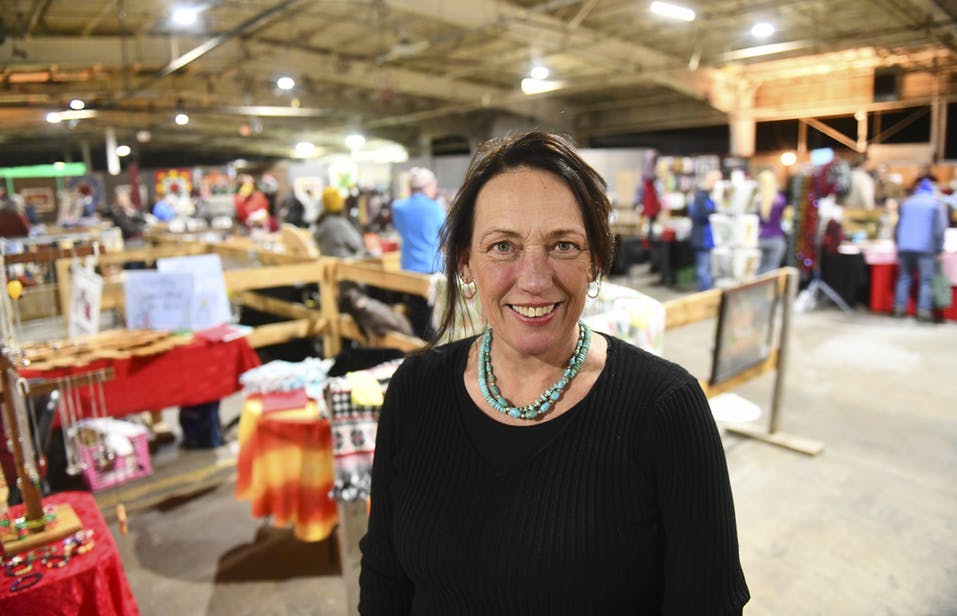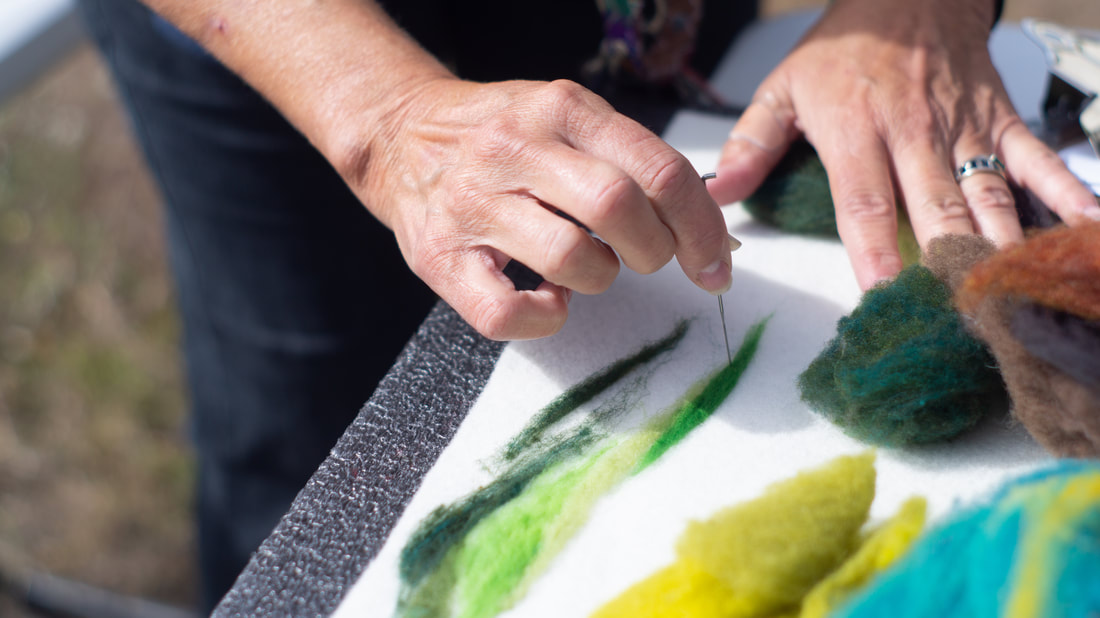|
Sprout works with numerous restaurants, food cooperatives, hospitals, long-term care facilities and manages a direct-to-consumer Community Supported Agriculture Program. LITTLE FALLS — Alongside Brainerd School District and Crosby School District Food Service Directors, Sprout MN launched a Farm to School Recipe Manual, which has been distributed to all school districts in Cass, Crow Wing, Todd, Morrison and Wadena counties. Through this U.S. Department of Agriculture Farm to School grant funded program, Sprout MN led this collaboration with area school districts to develop, test and implement brand new recipes that feature often underutilized produce, including beets, carrots, rutabaga and squash, the news release said. A core team consisting of food service directors, head cooks and food service staff created, developed, critiqued and adjusted the recipes. Students participated in six sensory exploration tasting events. The core team then completed Train the Trainer sessions of more than 24 additional food service staff. Sprout MN is focused on strengthening the local food system in central Minnesota by connecting growers, eaters, creatives and economic developers to increase healthy food access, encourage entrepreneurship and cultivate creativity. Sprout’s story is deeply rooted in supporting farm to school initiatives and its pioneering spirit has helped school districts and growers around the state create farm to school networks of their own. Sprout specializes in working with small family farms to aggregate locally produced fruits, vegetables and shelf-stable items that are 100% produced in central Minnesota. Sprout works with numerous restaurants, food cooperatives, hospitals, long-term care facilities and manages a direct-to-consumer Community Supported Agriculture Program. The farm to school network creates immeasurable positive impact on both producers and school districts nationwide. For Sprout and central Minnesota districts, the initiative has been instrumental in education of students and staff about the origins of the produce on their plates. Sprout seeks opportunities to support small family farms in central Minnesota through the longstanding relationships with food service directors and to advance our efforts on innovative ways to continue to introduce locally grown, nutritious foods onto the plates of school-aged children. The Farm to School Manual, with 30 recipes highlighting Minnesota Grown products, is publicly available and can be accessed at: bit.ly/3r7OPsM
To learn more, visit www.SproutMN.com and follow the Sprout MN on Facebook. By: Zach Hacker, Morrison County Record
“Together, all three of our organizations have formed an informal collaborative to try to meet the needs and opportunities of the citizens here in Little Falls and all of the surrounding communities,” Prosapio said. “We’re hoping to work together to help strengthen the local economies as we all are trying to recover from (the pandemic).”
“We have the ability — for consumers — the ability to access healthy foods,” Prosapio said. “Not everybody can hop in a truck and go out to a farm and pick up foods from there. Some folks have difficulty going over to a farmers market. We need greater access.” That access, she said, is not only on the consumer side. Producers also need greater access to markets and the ability to get their products to consumers. She said the collaborative also identified a need and an opportunity to improve the health of community residents. With that, there is also a chance to expand the local economy and utilize foods as an economic engine for the Little Falls area. “Supporting our local agricultural community is the easy part, but it also increases tourism,” Prosapio said. “People actually drive places to access healthy, local foods.” She added that the phenomenon of people wanting to know where their food is coming from is being felt throughout the state and nation as a whole. The group believes a strong local food system in Little Falls would help make it a more desirable community when people are looking to relocate. Her organization, Purple Carrot, is a local food cooperative that started in 2015. She said it currently has 637 owners, 73% of whom live within the Little Falls ZIP code and 90% of whom are in Morrison County. Purple Carrot owns and manages the Victor Mall on East Broadway. Eventually that will be the site of a full-service grocery store in downtown Little Falls. “The Purple Carrot is committed to sourcing as much food as we can from local producers, so we now would have a convenient downtown location for people to access food,” Prosapio said. “Interestingly enough, that area is considered a food desert by the definition of the USDA. We would be bringing a full-service grocery store into a food desert.” She added the location would also help alleviate transportation barriers to accessing local, healthy food. The market will also accept SNAP and EBT to ensure low-income families will be able to access its wares. “I want to tell you, on behalf of the Purple Carrot, we feel really fortunate to have a really vibrant local farmer’s market and Sprout, a local food hub,” Prosapio said. “It makes the work of a local food cooperative much easier, and it really goes to our mission.” Pederson said the Little Falls Farmer’s Market dates back to the 1880s, though it looks a lot different now. In its early days, there were live pigs, chickens and more. At one time, she said the city was known as the “Largest Little Pig Market in the World.” The farmer’s market operates at the Boys and Girls Club on West Broadway from May through October, each Wednesday and Saturday. She said they’ve had to put up with some inclement weather over the years, but in 2021, the market didn’t miss a day. Pederson said it is the only established farmer’s market operating in Morrison County. “The last couple of years, we have definitely increased our vendors and shoppers,” Pederson said. It averages about 50 vendors throughout the season. On Saturdays during the peak season — July and August — Pederson said the farmer’s market has become a gathering place for community members “to shop, to visit, to share stories, to gain information from the farmers and growers.” In 2021, the market began accepting SNAP and EBT. It did about $1,000 in sales for people using those payment methods, which she said has increased accessibility. It also implemented the Power of Produce, a youth program that allows children to get a $2 token each week to buy their choice of fresh fruit, vegetables or a plant that produces healthy foods. In its first year, there were 187 kids registered in the program, which amounted to 501 visits. “Doing your math, that’s $1,000 into our community to our kids that we gave fresh produce to,” Pederson said. Pederson said the Little Falls Farmer’s Market is proud to bring local food to customers, promote health within local residents and support producers and the local economy. The last of the organizations to present, Sprout is a 501(c)3 food hub which specializes in working with family farms in procuring locally grown commodities and distributing them to consumers, hospitals, restaurants and other large institutions, Jones said. She said Sprout recently finished a USDA grant with two schools in central Minnesota to produce a manual for 30 recipes that have been scaled up for large-scale production. The goal, she said, is to continue to increase use of local foods and provide curriculum for students that demonstrates the value of agricultural economies in central Minnesota.
One of the ways Sprout has worked to provide educational opportunities is through its two fully-licensed kitchens at the Sprout facility, which is located in the old Crestliner building. Jones said providing nutrition education builds the intellectual capacity for the people the organization hopes to serve. “You cannot just hand somebody who’s lived off of processed foods a rutabaga or a turnip and ask them to produce something that tastes good that they’re going to want to eat,” she said. “For us, nutrition education is a very high priority.” Another key priority is food access, particularly for low-income individuals who are experiencing food insecurity. Jones said Morrison County’s food insecurity rate is 9.7%. For her, personally, another target area is serving veterans and other service members. Since Sprout started in 2015, it has provided 1,200 weekly or bi-weekly household assistance boxes free of charge to residents in Region 5, with a focus on Little Falls and Morrison County. Of those, 175 have gone to veterans. Jones said 100% of the organization’s fundraising dollars go toward the free weekly boxes and household assistance. During the pandemic, Sprout repurposed its mobile food market to deliver those meals to homebound individuals. It’s something she said also benefits producers.
“As a small family farmer myself, I know how hard it is to grow our food and to get it to market, so I am particularly invested in keeping our agricultural land in ag production and supporting our agricultural economy,” Jones said. Ultimately, she said all three organizations involved in the collaborative are focused on increasing access to food, providing transportation and addressing transportation barriers, supporting and strengthening the local agricultural economy and using local foods as an economic driver in the area. She added that Sprout works with more than 150 small, family farms. Some of the organization’s statistics show the incomes of some of those families has increased 10% by having access to market channels and distribution through Sprout. “Little Falls is incredibly blessed to have an up-and-coming food cooperative, a long-standing farmer’s market — which is more than just access to food but is a community event — and a food hub,” Jones said. “There are only two operational food hubs in the state of Minnesota, and Little Falls houses one of them.” By: Sarah Kocher, St. Cloud Times MILACA — Though her greenhouse is full of them, a Milaca grower's pumpkins will not meet a toothy-smiled end on front porches this October. Instead, their rotund, mottled green shells will be split and Rachel Sannerud will scoop the seeds out of the yellow-orange flesh. These seeds are the end goal of a two-year grant project: growing pumpkins for their hulless seeds, called pepitas. Sannerud has committed to growing varieties of these pumpkins as a specialty crop for two years after receiving an approximately $11,000 Sustainable Agriculture Demonstration Grant from the Minnesota Department of Agriculture. "It's basically like a science experiment that you grow on farm," Sannerud said. 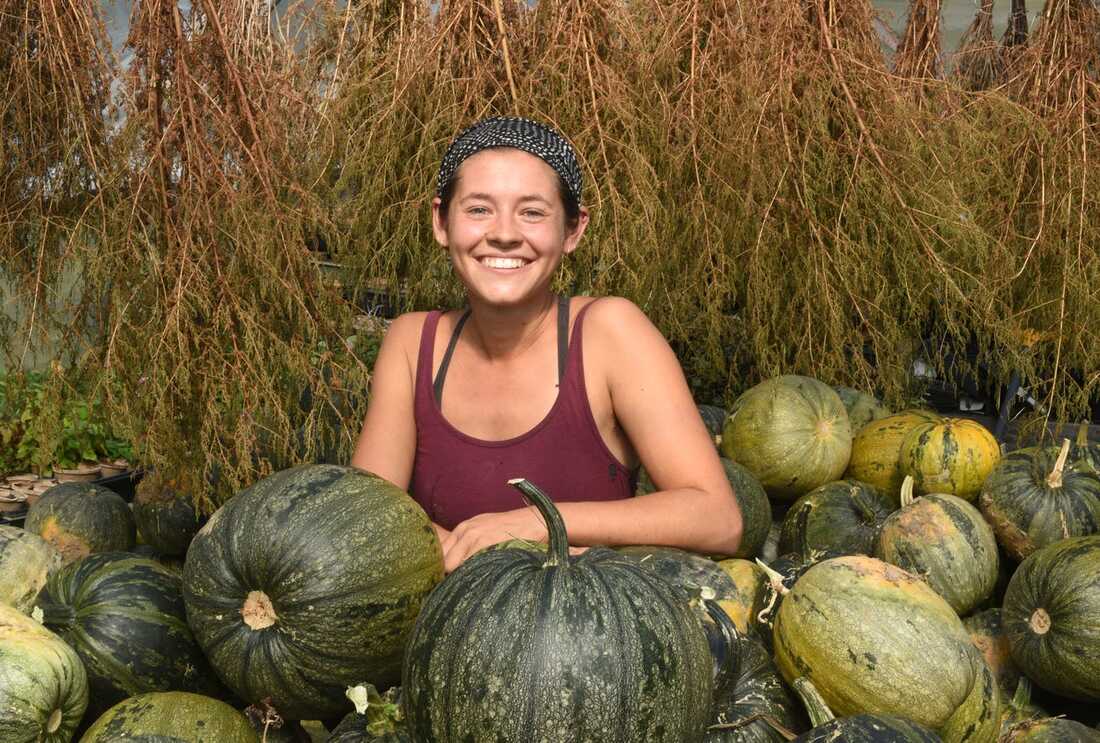 Rachel Sannerud, owner of Pluck Flower Farm, poses for a photo with her pumpkins Thursday, Sept. 24, 2020 in Milaca. Zach Dwyer, [email protected] Pepitas do not have the white, harder pith surrounding the pumpkin seed. They're slightly smaller, and come out of the pumpkin green. The seeds are a health food and can be marketed directly to consumers through farmers markets and also wholesale to places like restaurants and bakeries, Sannerud said. The grant allows her to explore growing hulless seed pumpkins without some of the financial risk. It's a learning experience, and the results of the experiment — what varieties work well, best practices for growing, pressure from disease and pests, good harvesting and processing methods — are shared with other farmers in a project report. Sannerud owns and runs Pluck Flower Farm, a small Milaca farm where bright blooms from zinnias and celosia were still growing Thursday near the pumpkin patch she's established for the experiment. 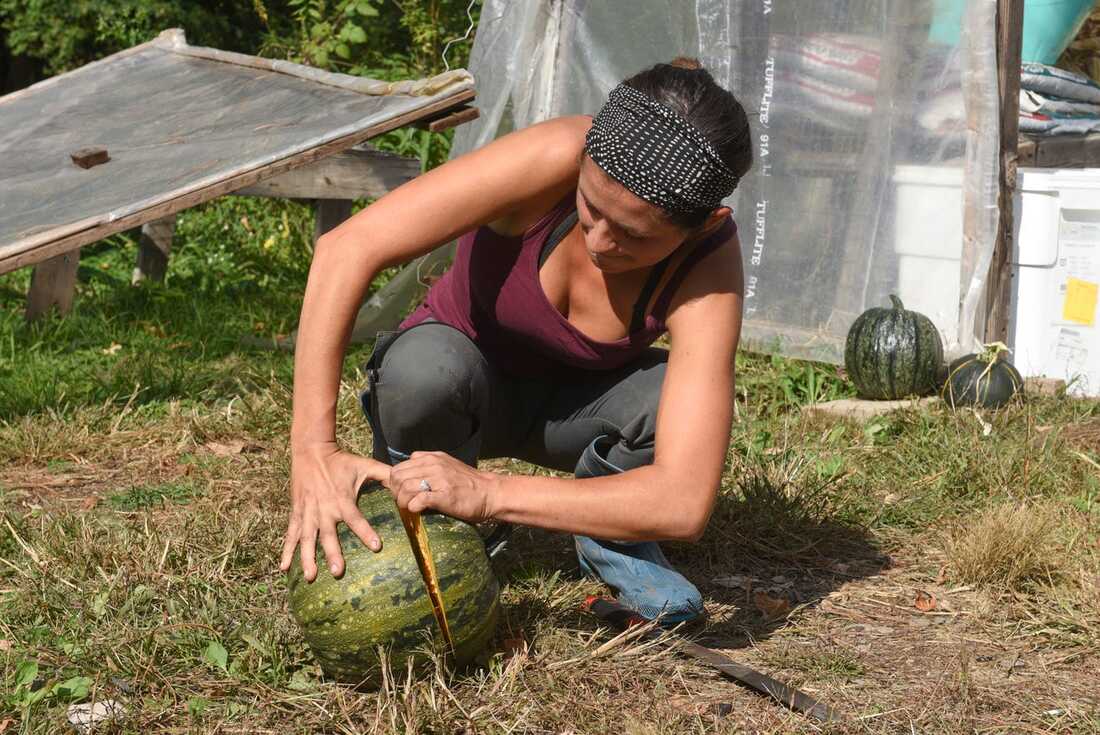 Rachel Sannerud, owner of Pluck Flower Farm, opens up a pumpkin after using a machete Thursday, Sept. 24, 2020 in Milaca. Zach Dwyer, [email protected] Hulless seed pumpkins have been grown in other countries and other parts of the U.S., Sannerud said, but haven't really been explored as a specialty crop in Minnesota. "For me and a lot of other small farmers, we want to know how it does here," Sannerud said. Sannerud bought the farm from three nearby brothers who live near the land she now cultivates. One passes along agricultural reading material to her — including a John Deere magazine with a feature article on hulless seed pumpkins. In the piece, Sannerud said, the seeds were being used for their oil. "What I took from it was that these are the same pumpkins that make the trendy seeds that go in people's granola," she said. "And I want to see if we can grow that." 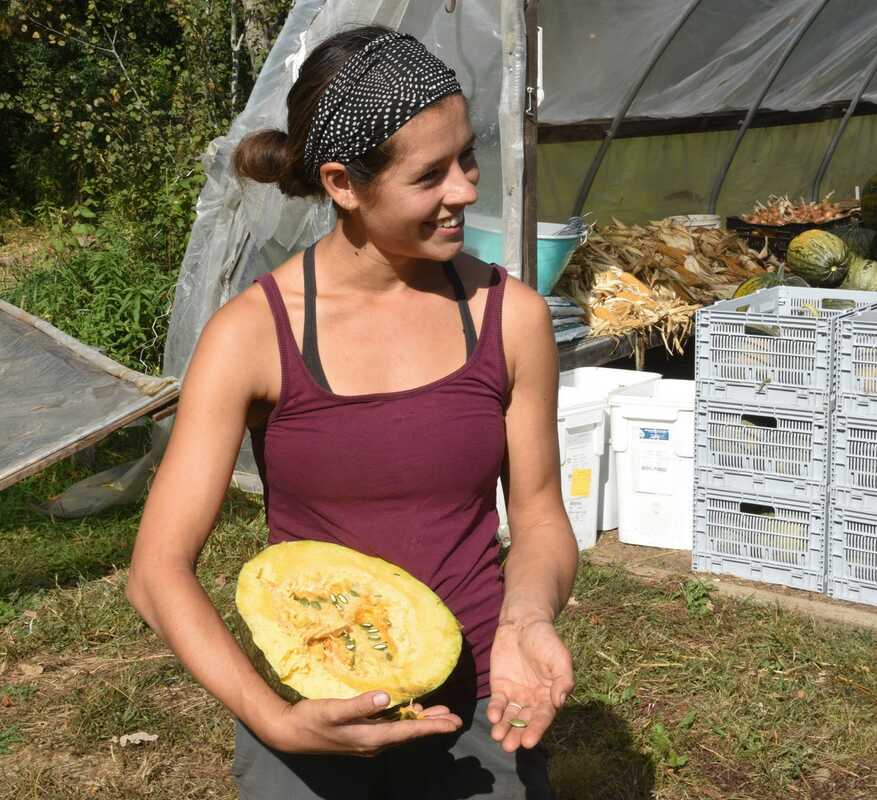 Rachel Sannerud, owner of Pluck Flower Farm, explains the difference in seeds for the new pumpkins she's growing Thursday, Sept. 24, 2020 in Milaca. Zach Dwyer, [email protected] The growing timeline also works well for her farm; the pumpkins need planting a little later than most of her flowers, and harvest time comes when her fresh flower work is winding down for the season, giving her more time to harvest and process them. They've been fun to grow, Sannerud said, but she doesn't have the information she needs yet to determine whether she'll plant these pumpkins past the two-year grant stint. To make that decision, she needs to discover some of the same things other farmers will want to know, too: How much time it takes to process the seeds, and what the yield is like. "If it all works out on paper, I'm absolutely interested," she said. She tested two growing conditions on her pumpkin plot. One half was not mulched, and the other was mulched with straw before the pumpkins were planted. She also grew three varieties of hulless seed pumpkins, which varied in the time to fruit maturation and size. One was a dual-purpose variety supposed to produce pepitas as well as flesh good for eating. 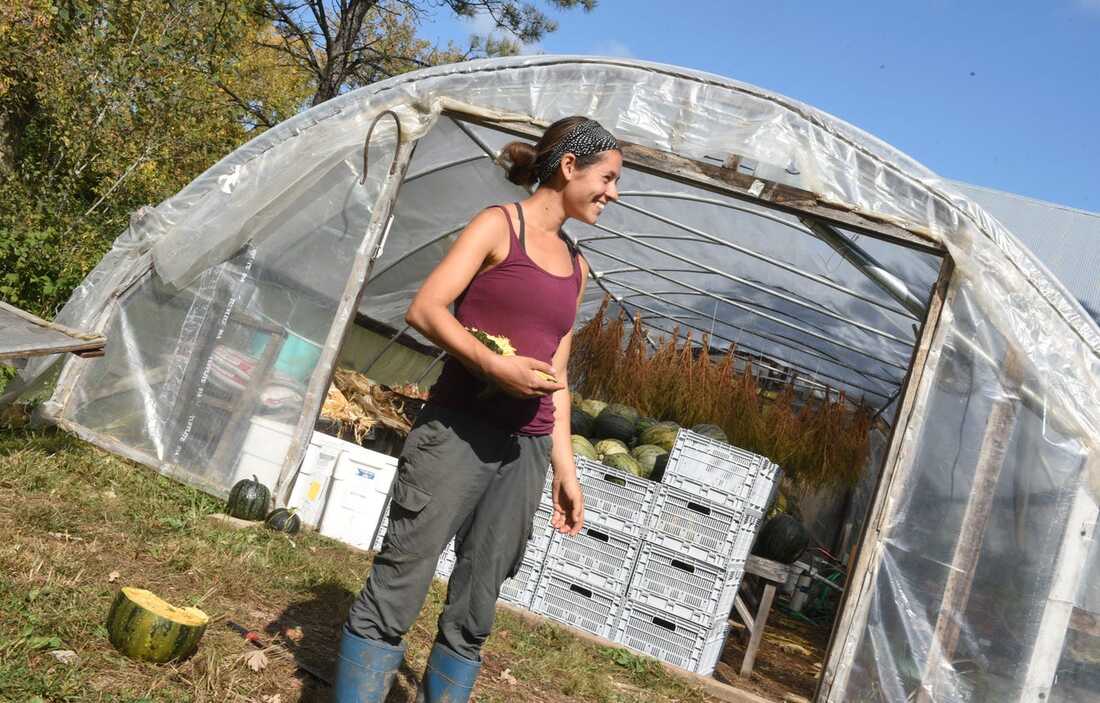 Rachel Sannerud, owner of Pluck Flower Farm, explains the difference in seeds for the new pumpkins she's growing Thursday, Sept. 24, 2020 in Milaca. Zach Dwyer, [email protected] Next year she'll repeat the growing process with modifications based on how this one went. For instance, her unmulched plot was supposed to be mechanically weeded, but the plants were too close together to fit the tractor she uses to weed. She had to weed the plot by hand. Once was enough. "I don't think I need to do that another year," she said, gesturing to the weeds in the unmulched plot. She may space them out more the second time around. Sannerud also plans to share her findings with other farmers on a field day next year. 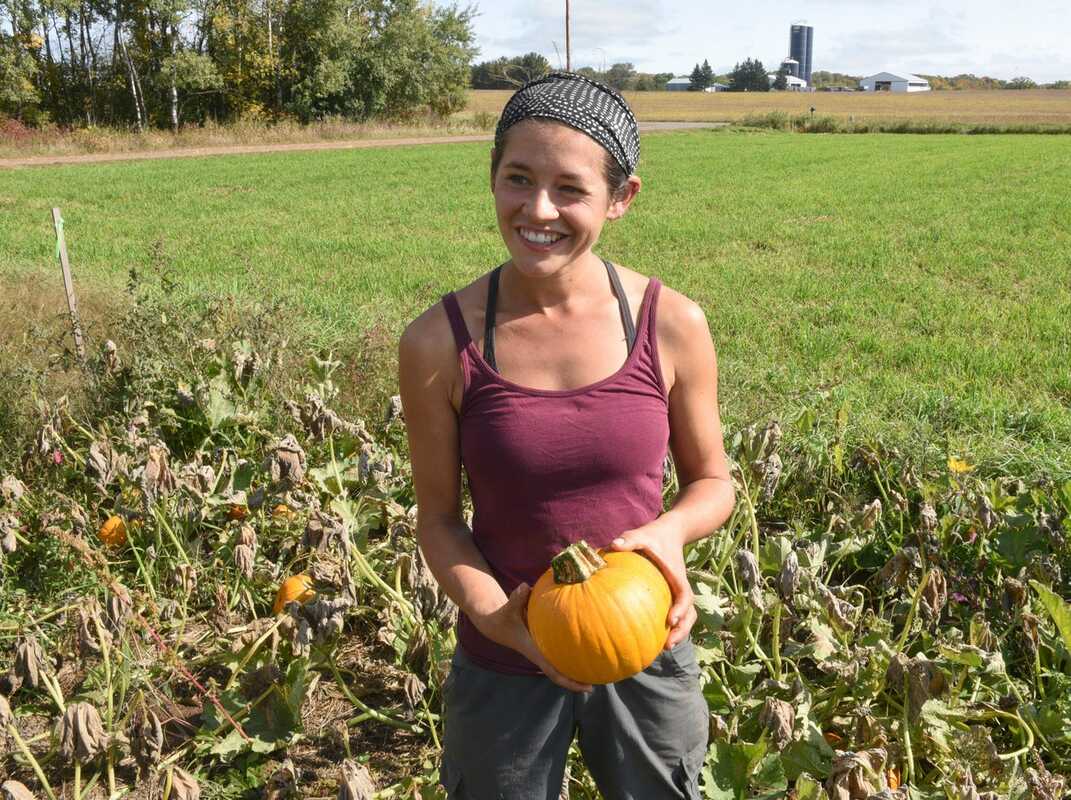 Rachel Sannerud, owner of Pluck Flower Farm, discusses the new pumpkins she's growing Thursday, Sept. 24, 2020 in Milaca. Zach Dwyer, [email protected] Sprout (a food hub in Little Falls connecting area farmers with both markets and direct consumers) is a collaborator on the project, Sannerud said, and she'll use their commercial kitchen to process the pepitas. After harvest, the pumpkins need to cure in her greenhouse. Then the pumpkins will move to Sprout, where she will cut them open, scoop out the seeds, wash and dehydrate them and package them. Grant projects are meant to explore sustainable agriculture practices and systems with the potential to increase profit, efficiency and personal satisfaction, a press release from the Minnesota Department of Agriculture said. For Sannerud, the grants are a chance for farmers to do something cool on their farms, and to help other farms become profitable — especially smaller farms, like hers. 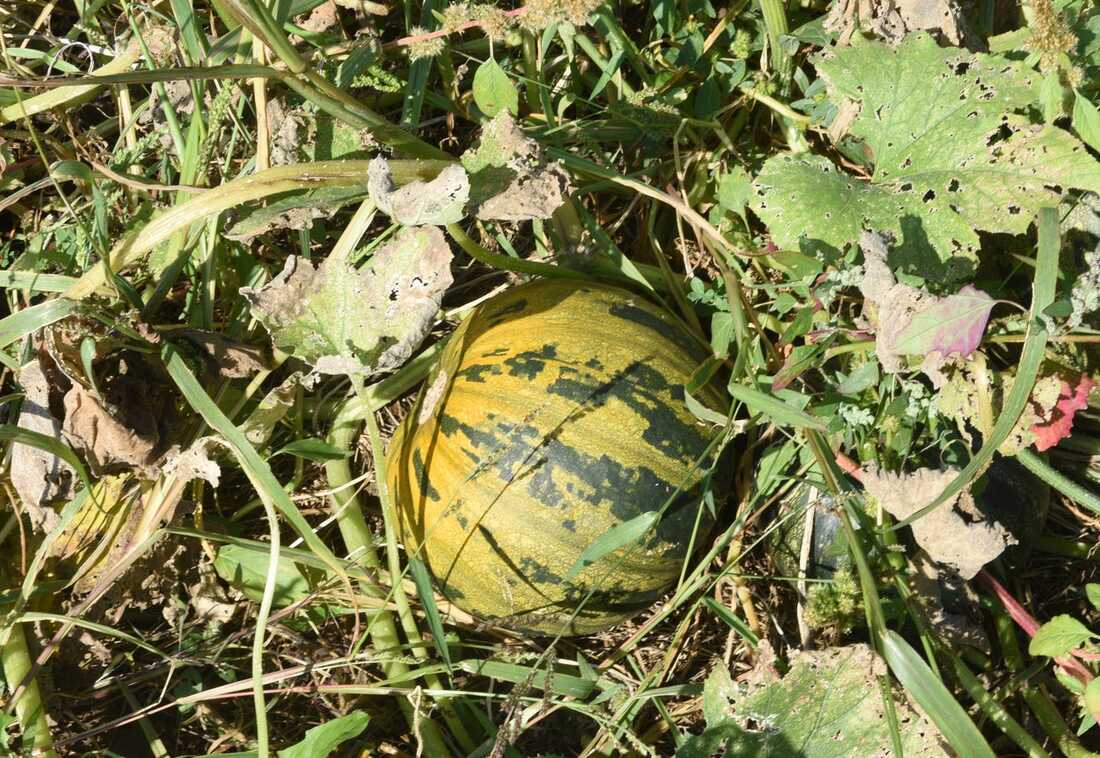 A pumpkin that has yet to be harvested sits in the field at Pluck Flower Farm Thursday, Sept. 24, 2020 in Milaca. Zach Dwyer, [email protected] Sannerud chooses what she does with her farm — what she grows and how she uses her land — very carefully, because it's largely her doing the work, she said. Any information that comes out of grants like these can make a really big difference, especially for younger and beginning farmers who already look for information like this on the internet. "That's the thing that excites me most is knowing that, if this goes well, it means it doesn't just go well for my farm," Sannerud said. "It means it probably goes well for a lot of other small farms like me, and that there's more small farms like me. And that means so much to me." Sannerud is one of eight farmers to receive a Sustainable Agriculture Demonstration Grant in 2020. Sarah Kocher is the business reporter for the St. Cloud Times. Reach her at 320-255-8799 or [email protected]. Follow her on Twitter @SarahAKocher.
Support local journalism. Subscribe to sctimes.com today. By Sheila McCoy, Staff Writer, Morrison County Record As people are finding different ways to support their local farmers during the novel coronavirus (COVID-19) crisis, one option to consider is signing up for community supported agriculture (CSA) shares, said Natalie Keane with Sprout in Little Falls. The CSA period runs from about mid-June for 16 weeks. People have the option to receive a box with a variety of vegetables either weekly or biweekly depending on their preference and family size. When herbs and farm-fresh eggs are available, those are added to the box. Community Supported Agriculture (CSA) shares allow subscribers to receive a box with a wide variety of fresh produce, such as tomatoes, cucumbers, broccoli, Romaine lettuce, red cabbage, green beans, green onions and zucchini, on a weekly or biweekly basis. The boxes are delivered to the subscribers. What kind of vegetables are included depends on what time in the season it is. “It’s almost like a gift that you get to open to see what’s inside,” Keane said. A recipe of a new, fun and sometimes unique meal is included in the box. It’s an opportunity for people who are getting a little tired of what they’re normally cooking. “It’s a great way to spice up the different types of things you may use or otherwise may pass by in the store,” Keane said. Most of the growers that provide the produce for the CSA program are located within a 50-mile radius of Little Falls. Some exceptions have been made when producers have something unique to offer, such as Doubting Thomas Farms in Moorhead, which produces flowers and Dancing the Land Farm in Clearwater, which uses high tunnels to grow some of their produce, Keane said. Sprout also works with a number of Amish farmers from the Browerville and Clarissa area. Like many of the other farmers, they focus on raising crops without using harmful chemicals to ensure that consumers are getting a fresh and natural product. Keane said many farmers, through the way they have treated their land, have cultivated a soil that is full of nutrients. 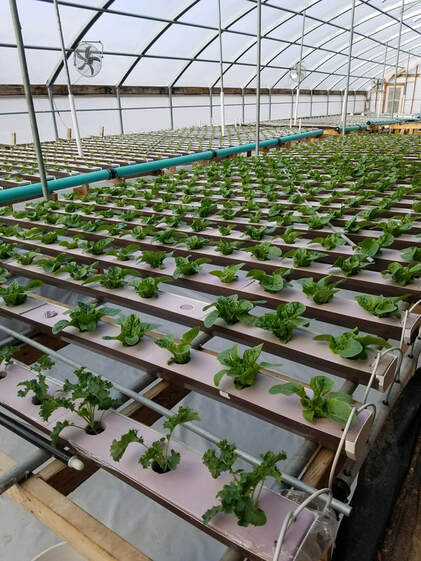 The produce provided through community supported agriculture shares come from different growers in Minnesota, including Barry’s Cherries, a hydroponic farm in Staples. The produce provided through community supported agriculture shares come from different growers in Minnesota, including Barry’s Cherries, a hydroponic farm in Staples. “Soil is just not dirt. It isn’t an inactive thing in the ground. It really is alive with many different properties and you really have to be a steward of the land in order to make sure you can keep that soil alive and healthy to grow fresh and healthy plants,” she said. Since the COVID-19 outbreak, Keane has seen an increase in people wanting to subscribe to CSA. “We are definitely finding more interest in the CSA, especially because it is a way to get your fresh produce without having to go into a store setting. People are considering their immune systems and it is pretty common knowledge that eating more fresh vegetables is a way to go about that,” she said. Another option Sprout has added are workplace CSAs. It is an opportunity for businesses to sign up as a way to offer their employees a little assistance. It can also boost employee morale and well-being. Keane said it can also be viewed as an employee wellness program as some employers offer their workers gym memberships to promote health. Through CSA, that can be done either by paying for or subsidizing the CSA. “During these unprecedented times, a fresh take to ensure employee wellness is needed more than ever. Sprout’s Workplace CSA brings local farm produce directly to members’ places of employment. This makes the Workplace CSA a convenient and attractive to connect employees with fresh, healthy produce while reducing the exposure that comes with traditional shopping trips,” Keane said. Keane said that both employers and insurance companies have become more aware of the benefits of engaging in proactive employee wellness program. “For every dollar spent on wellness programs, the average employee saves $3.27 in medical costs. In addition, sick leave, health plan costs, worker compensation and disability costs decrease by about 25% per year with these kinds of programs in place,” she said. Those who are interested in learning more about CSA shares, may visit www.sproutmn.com/csa. Written By: Chelsey M. Perkins, Brainerd Dispatch Producers believe what’s driving a spike in local farm business is a combination of people not wanting to shop in stores due to health concerns associated with the novel coronavirus, along with rising prices and limited availability of some meat and dairy products. NISSWA — Some farmer’s markets begin next week, and Gayle Stevens won’t have much pork to sell. The amount of money she might earn in a whole month during a typical early spring is coming in three to four times a week right now, flowing from both returning customers as well as new patrons of Patchwork Farms. The small heritage pig farm also sells eggs and beef, and Stevens made changes to allow for no-contact transactions on her front porch. She believes what’s driving a spike in her farm’s business is a combination of people not wanting to shop in stores due to health concerns associated with the novel coronavirus, along with rising prices and limited availability of some meat and dairy products. “I took in three pigs to the butcher yesterday (Wednesday). We start markets next week and I won’t even have the meat back yet,” Stevens said by phone Thursday, April 30. “I’ll have a limited supply of my pork products. Then he (the butcher) can’t get me back in until June. Three pigs’ worth of meat will probably be gone in the month of May.” Stevens said she can hardly keep up with the phone calls and isn’t able to help everyone who inquires. She recently received a phone call from a manager of multiple group homes in the area who is having trouble purchasing enough meat to feed 32 people. This is because of quantity limits placed on things like pork roasts and packs of chicken at grocery stores, she said. An impending pork deficit prompted Stevens to pivot Thursday — she placed rolling orders for about 800 Cornish cross chicks, which she’ll raise into broiler chickens. Ordering them all at once was another atypical move, but hatcheries are also overwhelmed with orders. Many aren’t able to ship new orders until late June or July. “We’ll do more chickens this year and some quail also. I thought, well, if I can’t supply enough pork and beef for a little bit just because of how busy my butcher is and I can’t get in until June. … I can get 100 (chicks) next week,” Stevens said. Laurence Fox of Fox Farm Pork in Browerville said he’s hearing similar stories from a number of small, local farmers who use his licensed butchering services, including Stevens. He’s booked solid for the next two months and mostly the rest of the year, when accounting for the 15 other small producers with whom he regularly works. “We’re busier than ever,” Fox said by phone Friday. “...Their freezers are all empty, and they’ll be running out of pigs by mid-summer to early fall. It’s just wiping us out. “ … I was going to expand last summer and I decided to wait until this summer. Now I wish I had the extra space to operate.” Sales increases in local foods as a result of the pandemic aren’t limited to meat and dairy. Arlene Jones of Sprout MN, a food hub based in Little Falls, said they’ve experienced a significant uptick in people purchasing community-supported agriculture shares, or boxes of produce and other local products delivered to consumers on a weekly or biweekly basis. This, in turn, is prompting produce farmers to ramp up their production. “A lot more people are looking at purchasing CSAs as they’re seeking alternative resources to going out in public and shopping,” Jones said. Jones said she’s seen other impacts, too, that seem promising for the local foods movement as people look inward to their own yards and communities as resources. “I think people who’ve always wanted to can and do food preparation are really going to find joy in that this year,” she said. “... I know people who have never gardened who are plowing up land to garden. It’s not like we’re doing victory gardens, but it’s pretty close.” Jones said Sprout also submitted a proposal for the U.S. Department of Agriculture’s Farmers to Families Food Box program as part of the Coronavirus Farm Assistance Program. The program will seek to distribute up to $3 billion of agricultural products to those in need, partnering with regional and local distributors. “We’ve gotten federal grants, but we’ve never actually contracted for distribution with the federal government as a method to support what they term small American family farmers,” Jones said. Pig problemsFox said he sees irony in high sales figures for what he described as premium-priced pork while the marketplace is flooded with thousands of cheap hogs. This is because larger-scale pig farmers are seeking to unload livestock directly to the public due to the closure or limited operation of meat processing operations across the Midwest. Those not sold are being euthanized in droves.
The hogs may be cheap, but openings with butchers are extremely difficult to come by, meaning many of those purchasing the hogs will likely have to butcher the animals themselves. Stevens said she’s beginning to hear from people wondering whether she would butcher a pig they’re considering purchasing from another farm at a bargain. “We can’t butcher for other people, and I can’t bring those hogs onto my place,” she said. “There could be diseases crossing over and I could lose my whole herd. Also, they are white meat pigs, and that’s not what I produce. … I have friends that are doing it, I’m not against people doing it. It’s not hurting my business.” What she can do is offer butchering advice for those who’ve never done it. And that’s basically the only viable option to those buying live pigs direct from farms. Waiting until a spot opens up with a butcher might mean a couple of months of feeding a pig that’s prime butchering weight, at which point the cost of feed outweighs the value of the meat. “If you’ve got deer hunters in your family, you guys can debone a pig,” Stevens said. “It’s a bigger animal but you can do it the same way.” Meanwhile, freezer and refrigerator space at Sprout’s Little Falls food hub facility may be made available to local farmers in need of more holding capacity for their butchered livestock. Jones said they’re working with the Minnesota Department of Agriculture to make those connections. CHELSEY PERKINS may be reached at 218-855-5874 or [email protected]. Follow on Twitter at twitter.com/DispatchChelsey. Amanda Rasinski - Morrison County Record For three days, Little Falls residents had the opportunity to attend open house style events to offer their opinions and thoughts on issues, challenges, hopes and dreams for the future of Little Falls. The OurTown56345 Steering Committee spent months meeting with various focus groups and collecting surveys to compile a list of key assets, issues, challenges and goals for the future of the community. After reviewing surveys once they reached nearly 120 submissions and then again when there were 260, event facilitator Sharon Rodning-Bash said the top issues and key assets remained the same across the board. Time and time again the Mississippi River was ranked as the number one asset to the community, she said. Other assets noted were local foods, agriculture, non-profits, health care and the city’s connection to Highway 10. “Next to the Mississippi, everyone is saying, ‘The kids are our future and we have a strong school system. How can we make it stronger?’” Rodning-Bash said. “So these are the assets that the community is saying, ‘Let’s build on it, they are our future.’” When asking for local assets, the survey also targeted challenges for the community. Affordable housing and child care access topped the list. Rodning-Bash also said that discrimination and the community being unwelcoming to new people and ideas was noted often in the survey as well. OurTown56345 wanted to identify key issues to bring forward at the open houses. Monday, Feb. 10 through Wednesday, Feb. 12, participants were asked to place sticky notes with their ideas and opinions on how to build on the assets and address the challenges in the community. Many comments were made about revitalizing the downtown area, bringing bike and recreation trails to the community — possibly along the river, supporting agriculture and protecting the river while also using it for tourism.  The 2030 vision board on the final night of the three-day OurTown56345 community event showed contributions from residents with photos of thriving communities, nature, culture and written aspirations to grow the community with tourism and acceptance of all people. The 2030 vision board on the final night of the three-day OurTown56345 community event showed contributions from residents with photos of thriving communities, nature, culture and written aspirations to grow the community with tourism and acceptance of all people. Some recurring challenges posted, in line with online surveys, pertained to affordable child care, housing and expanded education in skilled/trade industries. Participants commented on the four themes identified from the focus groups: helping the next generation, building a strong local economy, preserving the Mississippi River and being a welcoming community. These themes were listed on posters and residents were asked what their vision was for the future relating to these topics. Several comments revolved around improving city assets by adding trails, benches, bike racks and public WiFi to local parks. Many residents see a future with gardens and monuments and a cafe or restaurant along the river. Child care, housing and workforce were yet again issues participants want to address for the future of the city. Community members could also add to a vision board collage which displayed their hopes, dreams and aspirations for the future of Little Falls. A table full of Legos displayed infrastructure creations by visitors looking for a more tangible way to share their ideas. The open discussion table was another popular way for people to share their ideas and opinions. Conversations ranged from senior housing to bringing in young families with affordable child care and more wide ranging jobs with benefits. Some residents were concerned about maintaining the historical area of the city while welcoming new assets. A number of people suggested a nice eatery with views and had a general feeling that the river is an under-utilized asset to the community. Many other topics were recurring: bike trails, community gardens, a recreation center, more activities for young children. Although the public events are over, the OurTown56345 survey will be available online until Feb. 24, and Rodning-Bash said all are encouraged to participate. The survey link can be found on the group’s Facebook page or people can go directly to the survey, here. In late May, the Steering Committee and the city will compile all of the findings into a document which Rodning-Bash refers to as a strategic framework. She said the document will hopefully be adopted by the City Council and used as a reference for future projects and focuses in the community. By NORA G. HERTEL Associated Press, Published in the Star Tribune LITTLE FALLS, Minn. — Agriculture stories this past year focused on the affects of a trade war and the impact of climate change on farmers. Arlene Jones has a different story to tell. She's a farmer with 80 acres and the executive director of Sprout, a food hub in Little Falls that connects local farmers with markets in schools and restaurants and with consumers directly. "The trade wars don't impact small, biodiverse farms," Jones told the St. Cloud Times. “The trade wars are impacting the growers that have thousands and thousands of acres of mostly corn and soybeans that are sitting in grain elevators, because there's no market for them.” The small farmers who work with Sprout don't rely on the international market, Jones said. She co-founded Sprout after she found local buyers for her own and others' produce. "Growers that practice variety over volume are less likely to have access to markets," Jones said — and they're less vulnerable to trade actions. The nonprofit took root in 2012 and has grown in the last three years. Sprout is home to a rental kitchen for cooking classes and small food processors, and it's a monthly marketplace in the winter and hosts other food and artistic programs.
Their marketplace expanded from 20 vendors three years ago to 45 with a waiting list. On a recent Saturday morning the Sprout warehouse echoed with songs from the Cold Spring Area Maennerchor. Craft and food vendors displayed their wares. And the kitchen smelled like garlic as Central Minnesota farmers prepped for a cooking demonstration. Sprout has used an arts grant over the last three years to beautify its space and highlight minority groups in the community. Staff applied for another grant and hope to get funding to tell farmers' stories and feature cooking demonstrations with their food. "Consumers are continuing to demand the story behind their food," Jones said. "I think it is the consumer conscience, (the) consciousness of really starting to care about the economic vitality of the communities that they live in," she said. “And you pair that with personal responsibility for our own well-being through food, and those are value propositions that no one's going to turn their back on.” And it's good for the environment. Kate Droske mixed sour cream into a skillet of ground beef for the filling of pierogis, Polish dumplings, at the start of Saturday's marketplace. She prepped to demonstrate her great-grandmother's recipe with her husband Tyler Carlson. The two run Early Boots Farm in Sauk Centre and raised the beef used in the recipe. Jim and Audra Chamberlin of Island Lake Farm in Deerwood brought garlic, onions and potatoes for the demonstration. All four farmers in Sprout's kitchen have used Sprout for freezer space or sold their produce through the nonprofit. They attended Saturday to represent the Sustainable Farming Association's Central Chapter. "Agriculture done well heals," said Jim Chamberlin. “Agriculture done poorly degrades. Degrades our water. Degrades our soil. Degrades our health. Degrades our rural communities.” Nora G. Hertel, St. Cloud Times Published 2:02 p.m. CT Dec. 16, 2019 | Updated 4:48 p.m. CT Dec. 16, 2019 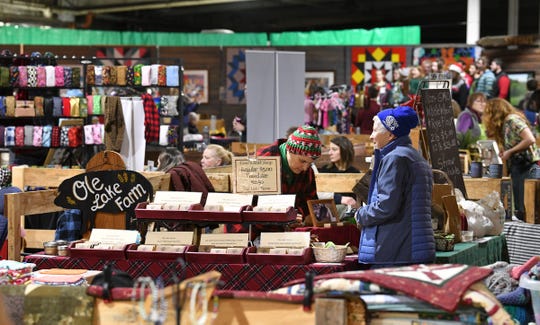 Many items are on display during the Growers and Makers Marketplace event Saturday, Dec. 14, at Sprout food hub in Little Falls. (Photo: Dave Schwarz, [email protected]) LITTLE FALLS — Agriculture stories this year focused on the affects of a trade war and the impact of climate change on farmers. Arlene Jones has a different story to tell. She's a farmer with 80 acres and the executive director of Sprout, a food hub in Little Falls that connects local farmers with markets in schools and restaurants and with consumers directly. "The trade wars don't impact small, biodiverse farms," Jones said. "The trade wars are impacting the growers that have thousands and thousands of acres of mostly corn and soybeans that are sitting in grain elevators, because there's no market for them." 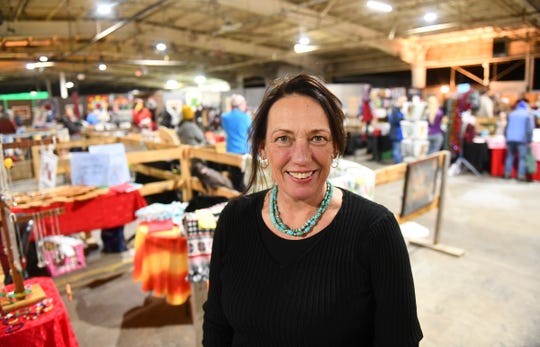 Sprout executive director Arlene Jones takes a second to smile for a photograph during the Growers and Makers Marketplace event Saturday, Dec. 14, at the food hub in Little Falls. (Photo: Dave Schwarz, [email protected]) The small farmers who work with Sprout don't rely on the international market, Jones said. She co-founded Sprout after she found local buyers for her own and others' produce. "Growers that practice variety over volume are less likely to have access to markets," Jones said — and they're less vulnerable to trade actions. The nonprofit took root in 2012 and has grown in the last three years. Sprout is home to a rental kitchen for cooking classes and small food processors, and it's a monthly marketplace in the winter and hosts other food and artistic programs. Their marketplace expanded from 20 vendors three years ago to 45 with a waiting list. 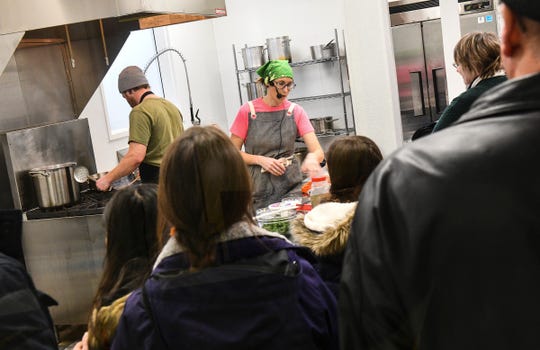 Kate Droske and Tyler Carlson of Early Boots Farm give a demonstration on preparing Pierogies Saturday during the Growers and Makers Marketplace event Saturday, Dec. 14, at Sprout in Little Falls. (Photo: Dave Schwarz, [email protected]) On Saturday morning the Sprout warehouse echoed with songs from the Cold Spring Area Maennerchor. Craft and food vendors displayed their wares. And the kitchen smelled like garlic as Central Minnesota farmers prepped for a cooking demonstration. Sprout has used an arts grant over the last three years to beautify its space and highlight minority groups in the community. Staff applied for another grant and hope to get funding to tell farmers' stories and feature cooking demonstrations with their food. "Consumers are continuing to demand the story behind their food," Jones said. "I think it is the consumer conscience, (the) consciousness of really starting to care about the economic vitality of the communities that they live in," she said. "And you pair that with personal responsibility for our own well-being through food, and those are value propositions that no one's going to turn their back on." 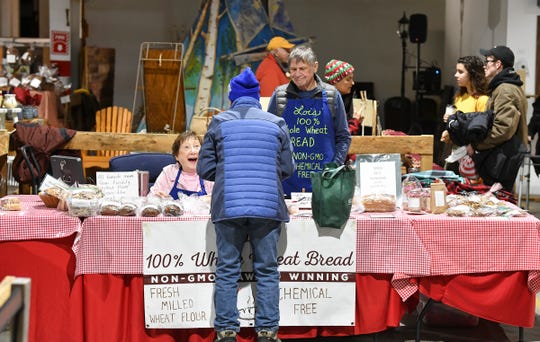 People shop for a wide variety of locally-made and grown items during the Growers and Makers Marketplace event Saturday, Dec. 14, at Sprout in Little Falls. (Photo: Dave Schwarz, [email protected]) And it's good for the environment Kate Droske mixed sour cream into a skillet of ground beef for the filling of pierogis, Polish dumplings, at the start of Saturday's marketplace. She prepped to demonstrate her great-grandmother's recipe with her husband Tyler Carlson. The two run Early Boots Farm in Sauk Centre and raised the beef used in the recipe. Jim and Audra Chamberlin of Island Lake Farm in Deerwood brought garlic, onions and potatoes for the demonstration. All four farmers in Sprout's kitchen have used Sprout for freezer space or sold their produce through the nonprofit. They attended Saturday to represent the Sustainable Farming Association's Central Chapter. "Agriculture done well heals," said Jim Chamberlin. "Agriculture done poorly degrades. Degrades our water. Degrades our soil. Degrades our health. Degrades our rural communities." Sustainable agriculture is tied to the local food movement and supports soil health through practices like cover crops and rotational grazing. Small farmers may be shielded from trade wars, but they're not protected from volatile weather and other challenges in farming, like finding a next generation of farmers. Jones hopes with a new grant Sprout can better equip farmers, including Amish and Hispanic growers, to compete with behemoth producers. The farms that Sprout works with aren't mechanized farms, Jones said. They're hand-planted, weeded and harvested. "A farmer's hand touched that food," she said. "And we want you to know the story behind it." Note: This story is part of an intermittent series at the St. Cloud Times about the future of agriculture in Minnesota.
Written By: Brainerd Dispatch LITTLE FALLS – Local farmers will showcase their products at the upcoming Holiday Growers & Makers Marketplace from 10 a.m. to 3 p.m. Dec. 14 at Sprout in Little Falls. The December market aims to create a cheerful holiday experience for the whole family through cooking demonstrations, tasty food samples, choir singing and shopping for handmade and homegrown food, art and gifts, it stated in a news release. The public is invited to attend the free event which also includes art activities for all ages through a traveling felting studio and community rug-making. Entertainment at the market from 10 a.m. to noon will be The Cold Spring Area Maennerchor — German for Men’s Choir — celebrating over 80 years of bringing spirited singing to central Minnesota. The group of more than 15 singers will be dressed in German vests and hats performing a festive set with Christmas carols in German and English as well as a few German crowd favorites. Pillager Schools’ Chamber Singers will then take the stage from 1-3 p.m., singing a mix of a cappella vocal music and holiday carols.  Tyler Carlson and Kate Droske of Early Boots Farm (Sauk Centre, Minn.) will prepare Pierogi at the Sprout market, featuring their own grass-fed beef. Tyler Carlson and Kate Droske of Early Boots Farm (Sauk Centre, Minn.) will prepare Pierogi at the Sprout market, featuring their own grass-fed beef. There will be a cooking demonstration and food sampling at about noon in the Sprout kitchen, featuring central Minnesota farmers with the Sustainable Farming Association. SFA is a farmer-to-farmer network that promotes environmental stewardship, economic resilience and strong, diverse communities through education, demonstration and research. The cooking demonstration will be led by Tyler Carlson and Kate Droske of Early Boots Farm of Sauk Centre, who will prepare Pierogi featuring their own grass-fed beef, in addition to products from Ole Lake Farm of Aitkin and Island Lake Farm in Deerwood. Pierogi, the national dish of Poland, are delicate, stuffed dumplings that date back to the 13th century. Pierogi is a staple holiday dish to celebrate Christmas, Easter, weddings, and more, often having a designated flavor for each holiday, a news release stated. The public is invited to gather in the kitchen to watch the demonstration and learn more about the SFA. SFA members are also invited to stay at Sprout for a social at 3 p.m., which will include a Local Fermentation potluck. Market attendees are encouraged to come to the Market day hungry, to taste the samples and to dine at the Cabin Fever “pop-up restaurant” to enjoy lunch, craft brews and wine during the market, a news release stated. Those inspired by the art at the market can have the opportunity to try their hand at two fiber art activities during the market. Facilitated by Liz Dwyer of Dancing the Land Farm, the community will help create a felt rug as an art installation for the Sprout Marketplace. Using wool from “good-felting sheep” she raises on her farm in Clearwater, Dwyer lets the natural wool dictate the color pallet with shades of white, brown, gray and black. After many years of learning and teaching felting, Dwyer travelled to Kyrgyzstan to study a very specific, traditional Kyrgyz style of rug-making. “There I was steeped in felt, the sounds of sheep, the dizzying heights of the high mountain pastures, the sounds of nomad horse games, the taste of vodka, and apricots, and lamb stew, and endless cups of black tea and milk. I felted until my hands were raw, and my eyes crossed. And I learned a ton,” Dwyer stated. As one of three Western women who have been taught this art by traditional Kyrgyz artists, Dwyer has the rare permission to keep making and teaching the art. At the market, she needs the many hands of market goers to contribute to the rug-making, as she states “Traditionally, felt-making is community making.” Market attendees can learn other fiber art techniques at the Mobile Felting Studio by artist Lisa Jordan of Brainerd. As an ambassador for the fiber art form in the region, Jordan has introduced the art to hundreds of students through various workshops and demonstrations. At the mobile studio, Jordan sets up a “sensory feast” of raw fleeces with their sheepy scent and greasy feel, lofty wool batting, unusual looking wool tools and bowls of tiny animals made of wool to pique curiosity, a news release stated. Participants can try many aspects of processing and felting from washing fleece to needle-felting. The Mobile Felting Studio by artist Lisa Jordan (Brainerd, Minn.) will be set up at the Sprout Market, where participants can learn about many stages of fiber and ways of felting. MARKETPLACE BACKGROUND
The community is invited to shop the Sprout Growers & Makers Marketplace vendors selling local food and art in 2020 on Saturdays from 10 a.m. to 3 p.m. on January 25, February 29, March 28, October 31, November 14, December 12. During these markets, through visual and performing art, culinary demonstrations, Sprout showcases community assets and talents of a variety of cultures across the region. In the months of April through September, Sprout hosts cooking classes, educational workshops, MINCED: The Finer Version of Chopped cooking competition on May 8, 2020, and Summer Harvest Dinner on July 31, 2020, utilizing food to tell stories and connect to one another. Due to a partnership with Hunger Solutions Minnesota, families and individuals eligible for the Supplemental Nutrition Assistance Program (SNAP) can also double their dollar at the Sprout Growers & Makers Marketplace and the Sprout Mobile Market. Shoppers with SNAP can swipe their EBT card at the market to receive an additional dollar for every dollar spent up to $10 in “Market Bucks.” SNAP is a federal food assistance program. Benefits are placed on an electronic benefits transfer card (EBT) similar to a debit card. To find out if you qualify for SNAP, call the Minnesota Food HelpLine at 1-888-711-1151 or visit mnfoodhelpline.org for more information. The À la cARTe Initiative is funded by the McKnight Foundation, Otto Bremer Trust, Lakewood Health System, and Mardag Foundation. The project is coordinated by Sprout MN, Region Five Development Commission and Five Wings Arts Council. Interested shoppers, growers, artists, chefs, and educators who want to learn more, visit www.SproutMN.com and follow the Sprout Growers & Makers Marketplace on Facebook.  Nathan Neuman on accordion will perform at the November Growers & Makers Marketplace. Nathan Neuman on accordion will perform at the November Growers & Makers Marketplace. LITTLE FALLS -- Homegrown, handmade food and art become available each winter month at the Sprout markets in Little Falls, but in November and December, the Holiday spirit is in full swing. With more than 40 farmers, artisans and artists displaying their work, the market becomes a one stop gift shop for the whole family. The Growers and Makers Holiday Markets will be open from 10 a.m. to 3 p.m. Saturday, Nov. 16, and Dec. 14 at Sprout. Sprout Growers and Makers Marketplace highlights regional arts through performances, cooking demonstrations and free art activities at each monthly market. The November performance at 10 a.m. will feature St. Cloud musician, Nathan Neuman on accordion. While primarily polka, Neuman also plays old-time music, waltzes, two-step and country.  Artist Tressa Hills will lead a free art activity for all ages titled “The Happy Little Art Cart” Saturday, Nov. 16, at the Sprout markets in Little Falls. Photo by Crystal Berg. Artist Tressa Hills will lead a free art activity for all ages titled “The Happy Little Art Cart” Saturday, Nov. 16, at the Sprout markets in Little Falls. Photo by Crystal Berg. There will be free art activities for all ages at “The Happy Little Art Cart” with artist Tressa Hills. The mobile art studio was named after Bob Ross, American painter, art instructor, and television host of “The Joy of Painting” who famously called painting mistakes “happy little accidents,” a news release stated. Hills carried on this mindset of turning “mistakes” beautiful by hosting a painting party with her community to paint the outside mural on the studio. Tressa is one of four artists engaged in Sprout’s À la cARTe Initiative that brings art experiences on the road to increase art access in rural Minnesota. The other artists include Lisa Jordan of Brainerd, Maria Ervasti of Staples and Heidi Jeub of Little Falls, will each have their mobile art studio at one of Sprout’s indoor winter markets throughout the season. 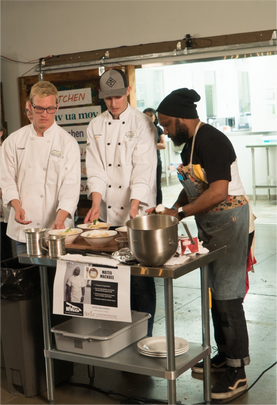 Chef Mateo Mackbee, winner of MINCED 2019, will do a cooking demonstration at the Sprout market. Chef Mateo Mackbee, winner of MINCED 2019, will do a cooking demonstration at the Sprout market. The community is invited to attend the market and enjoy free samples during the cooking demonstration which will showcase the culinary talents of Chef Mateo Mackbee of Model Citizen the Restaurant in New London. Mackbee holds the 2019 Master Chef award from the cooking competition MINCED: The Finer Version of Chopped. Sprout hosts MINCED annually, pitting three area chefs against each other and the timer to prepare a dish to impress the judges. Mackbee won over the judges in the dessert round with an Ethiopian pancake, bananas foster and berry sauce topping. Chef Jenna Brower Von Siebolds also be working in the Sprout kitchen the week of the market to host a Friendsgiving Cooking Class. The cooking class will run from 6:30-8:30 p.m. Thursday and will use locally sourced ingredients from Sprout Food Hub like Butternut Squash and Sweet Potatoes to create traditional Thanksgiving favorites with a twist. Cooking class tickets are $30 per person and can be purchased at www.sproutmn.com/kitchen#class. Market attendees are encouraged to come to the event hungry, to taste the samples and to dine at the Cabin Fever “pop-up restaurant” that will have lunch, craft brews and wine available during the market. Local food and art producers interested in participating in the market can become a vendor by visiting www.sproutmn.com/vendors. |
Categories |
